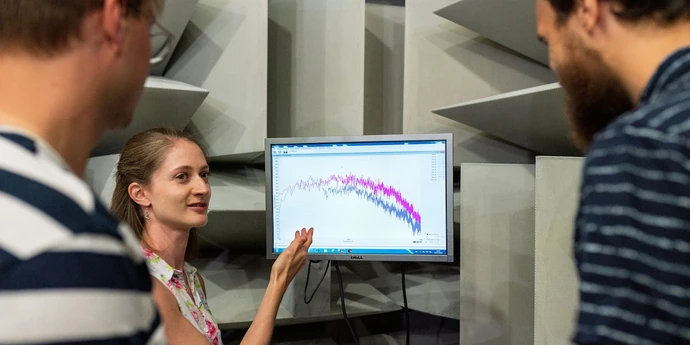Meta E6 interviews, for staff engineer candidates, are tough.
You'll need to prepare thoroughly, and we're not just talking about spending day after day on Leetcode: with 5-6 different interview rounds, you'll be deeply tested on a wide range of skills. Interestingly, it's the system design round, rather than coding interviews, that candidates tend to find most challenging.
The good news is that the right preparation can make a big difference and can help you land a job as a staff engineer at Meta. To help you get there, we’ve put together the ultimate guide below.
Here's an overview of what we'll cover:
Note: This guide is written primarily for E6 software engineering candidates but most of it will also be relevant if you're an E6 machine learning or data engineering candidate.
Let's go!
Click here to practice mock interviews with Meta staff engineer interview coaches
1. Meta E6: Level and Salaries↑
Before we cover your Meta E6 interviews, let’s take a look at the level you're applying for and what it means.
Individual contributor levels for engineers at Meta start at E3 and go up to E9.
E3: Entry-level engineer
E4: Engineer
E5: Senior engineer
E6: Staff engineer
E7: Senior staff engineer
E8: Principal engineer
E9: Distinguished engineer
At E6, Meta will expect you to have expert programming skills, but it's more interested in your ability to lead and have an impact on a technical team. Meta's job offers for ~E6 level engineers tend to highlight the following requirements:
- Experience leading projects with industry-wide impact
- Experience communicating and working across functions to drive solutions
- Experience in mentoring/influencing senior engineers across organizations
- Proven track record of planning multi-year roadmap in which short-term projects ladder to the long-term vision
- Experience in driving large cross-functional/industry-wide engineering efforts
1.1 What does a Meta E6 Engineer do?
At E6, staff engineers should make those around them more effective. Rohan, ex-senior swe at Meta, says at this level it's about being an "enabler, elevating team performance exponentially. This is the level at which your impact becomes less about your individual contributions and more about what you can enable."
1.2 How much does a Meta E6 engineer make?
Meta's competitive salary is among the numerous factors that draw high-performing engineers to the company. Below are the average salaries and compensations for the different engineering manager levels at Meta. This is based on the reported data from Levels.fyi.

Ultimately, how you do in your interviews will help determine what you’ll be offered. That’s why hiring one of our ex-Meta interview coaches can provide such a significant return on investment.
And remember, compensation packages are always negotiable, even at Meta. So, if you do get an offer, don’t be afraid to ask for more. If you need help negotiating, use our guide to Meta offer negotiations and consider booking one of our salary negotiation coaches to get expert advice.
2. Interview process and timeline↑
2.1 What interviews to expect
What's the Meta E6 engineer interview process and timeline? It takes four to eight weeks on average and follows these steps:
- Resume screen
- Recruiter phone screen
- Tech screen: 1 x 45-60 minute interview
- Full loop: 5 or 6 x 45-minute interviews
Let's look at each of these steps in more detail below:
2.1.1 Resume screen
First, recruiters will look at your resume and assess if your experience matches the open position. This is the most competitive step in the process, as most candidates do not make it past this stage.
You can use this software engineer resume guide to help tailor your resume to the position you’re targeting.
And if you’re looking for expert feedback, you can also get input from our team of ex-Meta/Facebook recruiters, who will cover what achievements to focus on (or ignore), how to fine-tune your bullet points, and more.
2.1.2 Recruiter phone screen
In most cases, you'll start your interview process with Meta by talking to an HR recruiter on the phone. They are looking to confirm that you've got a chance of getting the job at all, so be prepared to explain your background and why you’re a good fit at Meta. You should expect typical behavioral and resume questions like, "Tell me about yourself","Why do you want to work at Meta?", or "Tell me about your current day-to-day."
If you get past this first HR screen, the recruiter will then help schedule an initial interview with a Meta hiring manager. One great thing about Meta is that they are very transparent about their recruiting process. Your HR contact will therefore walk you through the remaining steps in the hiring process, and will also share with you a helpful email listing resources you can use to prepare.
2.1.3 Tech screen: 1 x 45-60 minute interview
The next step after your recruiter call is the tech screen. This is usually conducted via video call. You can expect to be asked two coding questions, of medium Leetcode difficulty. Some candidates report getting a couple of behavioral questions thrown in at the end or beginning of the interview.
You'll be using CoderPad for this interview so it might be worth getting familiar with it beforehand.
We cover this stage in more detail in our guide to Meta phone screen interviews.
2.1.4 Full loop: 5 or 6 interviews
If you pass the initial interview, you’ll be invited to do the onsite, or "full loop" as Meta calls it. The full loop interviews are the biggest test for Meta E6 candidates. During this interview loop, you'll have five or six separate 45-minute interviews with several different engineering leaders at Meta, consisting of:
- 1 or 2 Coding interviews
- 1 or 2 System design or Product architecture interviews
- 1 or 2 Behavioral interviews
- 1 Retrospective
We'll dive into each of these interviews in Section 3.
2.2 What happens behind the scenes
Your recruiter is leading the process and taking you from one stage to the next. Here's what happens behind the scenes at each of the stages described above:
- After the initial interview, the interviewer you talked to has 24h to submit their ratings and notes on the internal system. Your recruiter then reviews the feedback, and decides to move you to the onsite/full loop interview or not, depending on how well you've done.
- After the loop, your various interviewers will make a recommendation on hiring you or not and the recruiter compiles your "packet" (interview feedback, resume, referrals, etc.) If they think you can get the job, they will present your case at the next candidate review meeting.
- Candidate review meetings are used to assess all candidates who have recently finished their interview loops and are close to getting an offer. Your packet will be analyzed and possible concerns will be discussed. Your interviewers are invited to join your candidate review meeting, but will usually only attend if there's a strong disagreement in the grades you received (e.g. 2 no hires, 2 hires). If after discussions the team still can't agree whether you should get an offer or not, you might be asked to do a follow-up interview to settle the debate. At the end of the candidate review meeting, a hire / no-hire recommendation is made for consideration by the hiring committee.
- The hiring committee includes senior leaders from across Meta. This step is usually a formality and the committee follows the recommendation of the candidate review meeting. The main focus is on fine-tuning the exact level (and therefore the compensation ) you will be offered.
It's also important to note that hiring managers and people who refer you have little influence on the overall process. They can help you get an interview at the beginning, but that's about it
3. Meta E6 Example Questions↑
As explained in Section 2, you'll face 5 or 6 interviews at the full loop stage, lasting 45 minutes each.
Now let’s take a closer look at each question type.
We’ve provided example questions that we’ve found from our research on Glassdoor, Leetcode, and Blind. We've categorized the questions and we've changed the grammar and phrasing in some places to make the questions easier to understand.
3.1 Coding
Staff engineers at Meta may or may not code in their day-to-day, depending on their role and the way they make an impact. Nevertheless, you can expect to face at least one coding interview at the full loop stage where you'll need to demonstrate expert coding ability.
Meta says that you will be assessed on "efficiency, structure, syntax, bugs, and working code". However, you don't need to write "production-quality syntactically perfect code". You can write pseudocode and make up your own library functions. In terms of difficulty, think medium Leetcode.
The important thing is that your code is correct and solves the problem. It doesn't have to be the optimal solution we've seen plenty of candidates saying they failed to find the optimal solution but still got hired. But it's essential that you're able to have a discussion with the interviewer as you go - they'll be evaluating your problem-solving skills and they need to understand your thought process. Proactive communication is vital here.
See some example questions below. We sourced these from Meta E6 candidates' reports in Leetcode forums.
Example coding questions from Meta E6 interviews
- Random pick with weight
- Leetcode Medium about string palindromes
- Leetcode Medium involving prefix sums and 2D arrays.
- Merge 3 sorted arrays (similar to this)
- Implement pow(x, n), which calculates x raised to the power n (i.e., xn).
- Digit subtraction (minus 1) given an input array
- Simplify intervals (express consecutive intervals as a string expression given an array of integers)
- A variation of palindrome question
- String-shifted-groups question
- A variation of K largest
- A variation of Maximal Spanning Tree
You can find a list of fully written out example questions (with solutions) in The Ultimate Data Structure Interview Questions List, which contains 70+ coding questions asked at Meta, Google, and Amazon, from easy to hard. We also recommend our Meta coding interview prep guide.
3.2 System design / Product architecture
This is generally considered the hardest interview round in the Meta interview process. Depending on your exact role, you may get to choose between system design or product architecture, you may have one of each, or you may have the choice made for you!
In the system design interview, you'll be asked to design a "Meta-scale system". It could be a Meta product, or something completely made up.
You'll need to design a complete high-level system, including measurable metrics, realistic requirements, and fully explained and interconnected components. You'll proactively examine bottlenecks as well as the trade-offs of alternatives, and deep-dive into certain aspects of your design at the interviewer's prompting. Finally, you'll measure the final design against its initial objectives.
The product architecture interview is similar to system design, but according to Sidhanshu (ex-Meta senior engineer) you'll be expected to explore the problem domain more fully, to think about the entities in the system, a logical data model, potentially the physical data model (how the data is stored within the client and the server), the APIs and the interactions between the servers and clients. "The focus of a product design interview is typically on the more holistic parts of building a software solution and less focus on the back end components required,” he says.
Whichever of the two interviews you choose, prepare to visualize your thoughts on Excalidraw (Meta's preferred tool for this) as you discuss the questions posed by your interviewers. Your goal is to show that you can be creative and structured at the same time. You'll be assessed less on the exact solution you build and more on the way you consider trade-offs, justify your decisions, and take a structured approach.
Note: If you're a machine learning E6 candidate, these interviews will take the form of machine learning system design interviews.
Below are some example questions gathered from Leetcode and Glassdoor.com. Note that the last 3 questions below are not from our Meta E6 interview data, but are instead from Meta's guide to the software engineer interview loop.
Example system design and product architecture questions for Meta E6 interviews
System design:
- Design an ad impressions aggregator
- Design Instagram
- Design Facebook Messenger
Product architecture:
- Design Instagram features
- Design a service or product API*
- Design a chat service or a feed API*
- Design an email server*
We recommend you prepare for this interview using our Meta system design interview guide and/or our Meta product architecture interview guide.
3.3 Behavioral questions
Meta uses behavioral questions to test your soft skills. At E6 level, Meta focuses on cross-functional collaboration (especially dealing with conflict) and leadership skills, and you can expect at least one interview dedicated to questions along these lines.
Example behavioral questions for Meta E6 interviews
- Describe a situation where you had a tense relationship with somebody you were working with.
- Tell me about the time you experienced a conflict in a project and how it was resolved
- How do you deal with anxiety?
- Tell me about an accomplishment you're really proud of, how you drove it, and what the impact was
To learn how to answer this type of question, see our guide to Meta behavioral interview questions.
3.4 Retrospective interview
You're likely to face a project retrospective interview, where you'll deep-dive into a technical project you worked on recently. It's a discussion, not a presentation, so don't come with a slide show prepared. However, you might want to jump up and sketch out some designs or code on a whiteboard or a piece of paper (or Excalidraw, if you're remote interviewing).
Keep in mind that at E6 level, you'll want to pick a project that had significant scope and impact. Start off by explaining the project at a high level, and then jump into the details. Be ready to talk about not just technical details but also how you worked cross-functionally and got different stakeholders on board.
Example Technical retrospective questions for Meta E6 interviews
- Describe a project where you worked across the organization/company and collaborated with other teams.
- What was your role in the project?
- Did you do any technical planning or product roadmapping for it?
- How did you measure the success of your project?
- How did you handle any personal or team conflicts that arose?
For more guidance on this type of interview, check out our guide to Meta project retrospectives.
4. Meta E6 Interview Prep↑
Now that you know what questions to expect, let's focus on how to prepare. It's no secret that the performance bar at Meta is high. Some people even go as far as quitting their jobs to prepare for interviews full-time. This is extreme and not what we recommend doing, but it shows how much effort some candidates are ready to put in.
We've coached more than 15,000 people for interviews since 2018. Below is our four-step prep plan for Meta.
4.1 Learn about Meta’s culture
Most candidates fail to do this. But before investing tens of hours preparing for an interview at Meta, you should take some time to make sure it's actually the right company for you.
Meta is prestigious and it's therefore tempting to ignore that step completely. But in our experience, the prestige in itself won't make you happy day-to-day. It's the type of work and the people you work with that will.
If you know engineers who work at Meta or used to work there it's a good idea to talk to them to understand what the culture is like. In addition, we would recommend reading the following:
- Meta's 6 core values
- Facebook’s hacker culture (by Mark Zuckerberg, via Wired)
- Meta annual reports and strategy presentations (by Meta)
- Meta's approach to tech trends (by CB Insights)
- Meta org culture analysis (by Panmore Institute)
- Engineering at Meta
4.2 Practice by yourself
As we've outlined above, you'll have to prepare for a few different types of questions when preparing for Meta E6 interviews. In this article, we've recommended various deep-dive articles that will help you prepare for each question category. Here's the complete list.
- Coding: Coding interview prep
- System design: Meta system design interview
- Product design: Meta product architecture interview
- Behavioral: "Why Meta?" interview question, Meta behavioral interview questions
- Retrospective: Guide to technical retrospectives by Tony Wu (ex-FB)
Aiming to land a Meta engineer position at a different level? Read our other Meta engineer prep guides:
Once you’re in command of the subject matter, you’ll want to practice answering questions. But by yourself, you can’t simulate thinking on your feet or the pressure of performing in front of a stranger. Plus, there are no unexpected follow-up questions and no feedback.
That’s why many candidates try to practice with friends or peers.
4.3 Practice with peers
If you have friends or peers who can do mock interviews with you, that's an option worth trying. It’s free, but be warned, you may come up against the following problems:
- It’s hard to know if the feedback you get is accurate
- They’re unlikely to have insider knowledge of interviews at your target company
- On peer platforms, people often waste your time by not showing up
For those reasons, many candidates skip peer mock interviews and go straight to mock interviews with an expert.
4.4 Practice with experienced Meta interviewers
In our experience, practicing real interviews with experts who can give you company-specific feedback makes a huge difference.
Find a Meta interview coach so you can:
- Test yourself under real interview conditions
- Get accurate feedback from a real expert
- Build your confidence
- Get company-specific insights
- Learn how to tell the right stories, better.
- Save time by focusing your preparation
Landing a job at a big tech company often results in a $50,000 per year or more increase in total compensation. In our experience, three or four coaching sessions worth ~$500 will make a significant difference in your ability to land the job. That’s an ROI of 100x!















